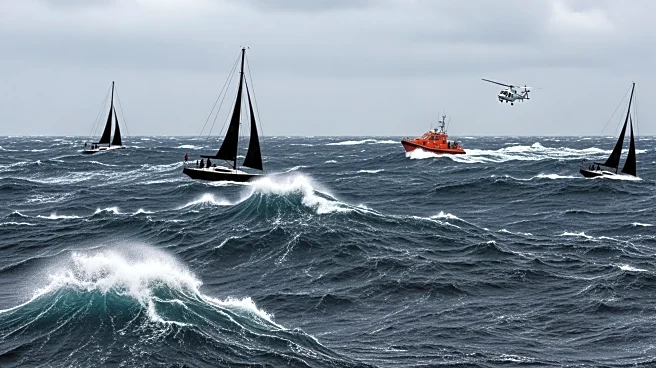What's Happening?
A pod of orcas has been filmed attacking sailboats off the coast of Portugal, near the town of Cascais. On September 13, two sailboats were targeted by the orcas during day trips. The first incident involved five people aboard a sailboat that was rammed by the whales, forcing them to evacuate to a nearby tourist boat. The second attack occurred later the same day, involving four individuals on another boat, who also escaped unharmed. Lisbon's search and rescue teams, along with the Cascais lifeguard station, responded to the incidents. These attacks are part of a growing trend of orca interactions with boats in the region, including the coasts of Spain and the Strait of Gibraltar.
Why It's Important?
The increasing frequency of orca attacks on boats raises concerns for maritime safety and tourism in the affected regions. These incidents could impact local economies reliant on tourism and recreational boating. The behavior of the orcas, which includes ramming and occasionally sinking boats, poses a threat to human safety and could lead to stricter regulations or changes in maritime practices. Understanding the reasons behind these interactions is crucial for developing strategies to mitigate risks and protect both human and marine life.
What's Next?
Authorities may need to investigate the causes of these aggressive behaviors and consider implementing measures to prevent future incidents. This could involve research into orca behavior, increased monitoring of marine activities, and possibly restrictions on boating in affected areas. Stakeholders, including local governments, marine biologists, and tourism operators, will likely collaborate to address the issue and ensure the safety of both residents and visitors.
Beyond the Headlines
The orca attacks highlight broader environmental and ecological concerns, such as the impact of human activities on marine life. These interactions may be symptomatic of changes in ocean ecosystems, possibly linked to climate change or shifts in prey availability. The situation underscores the need for sustainable marine practices and conservation efforts to protect marine biodiversity.











